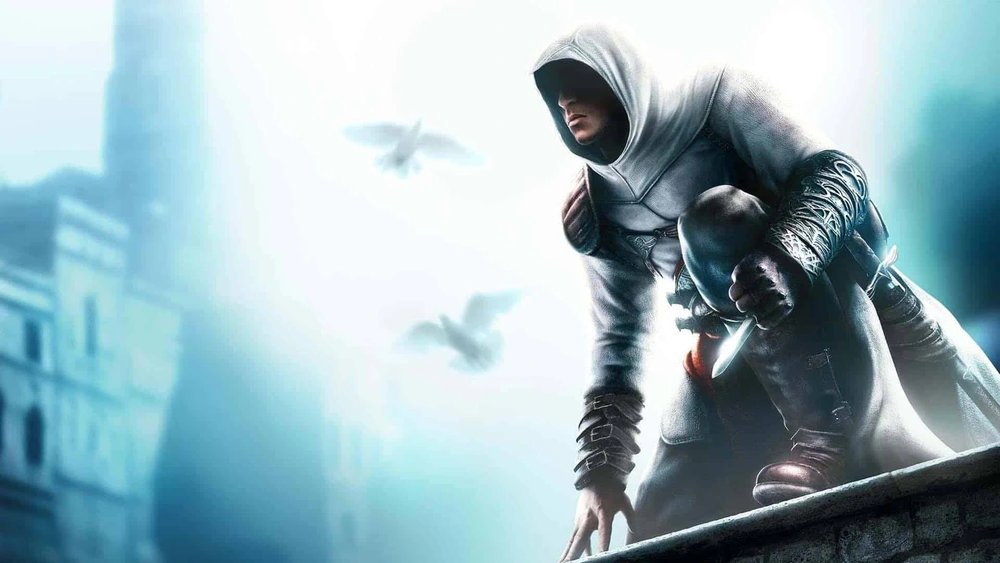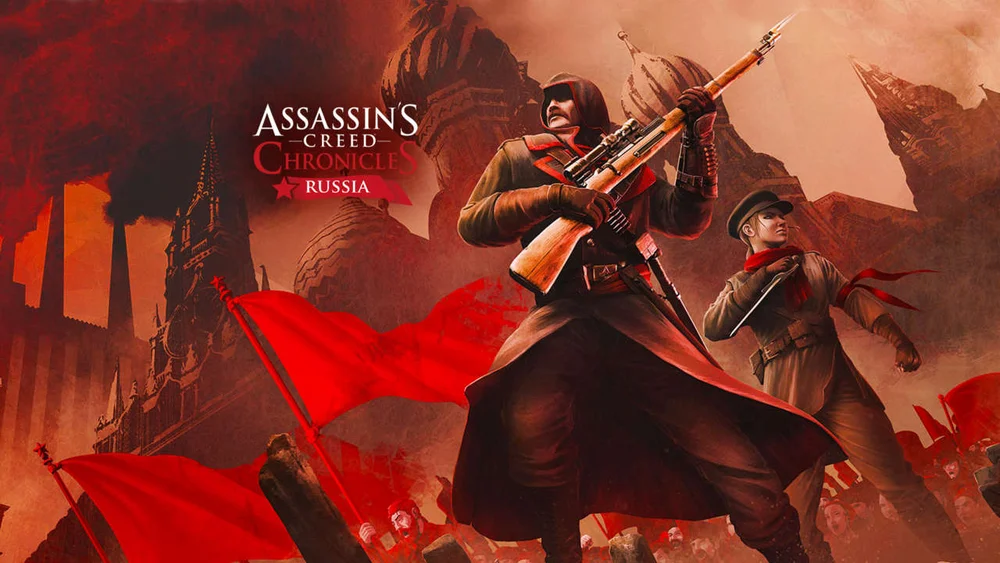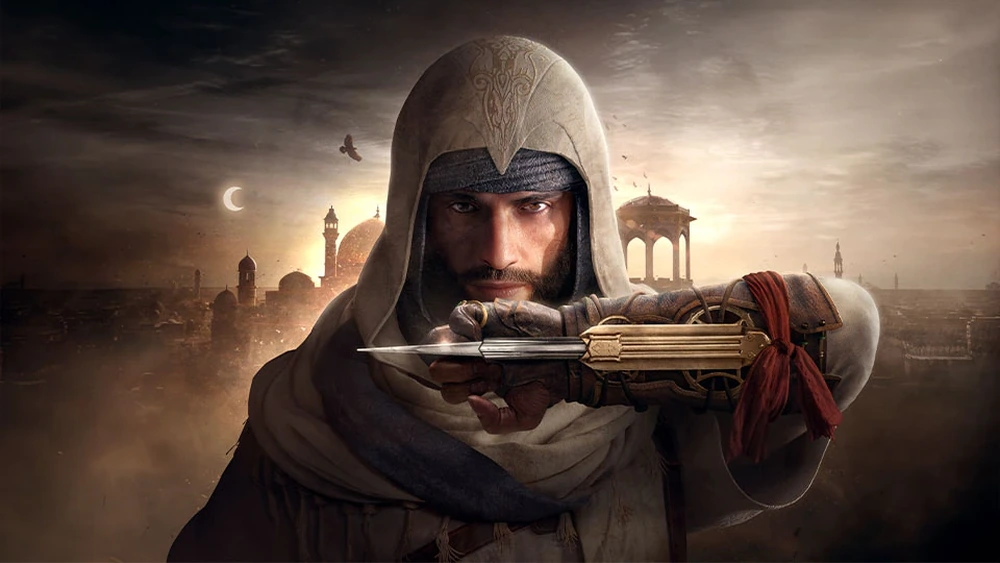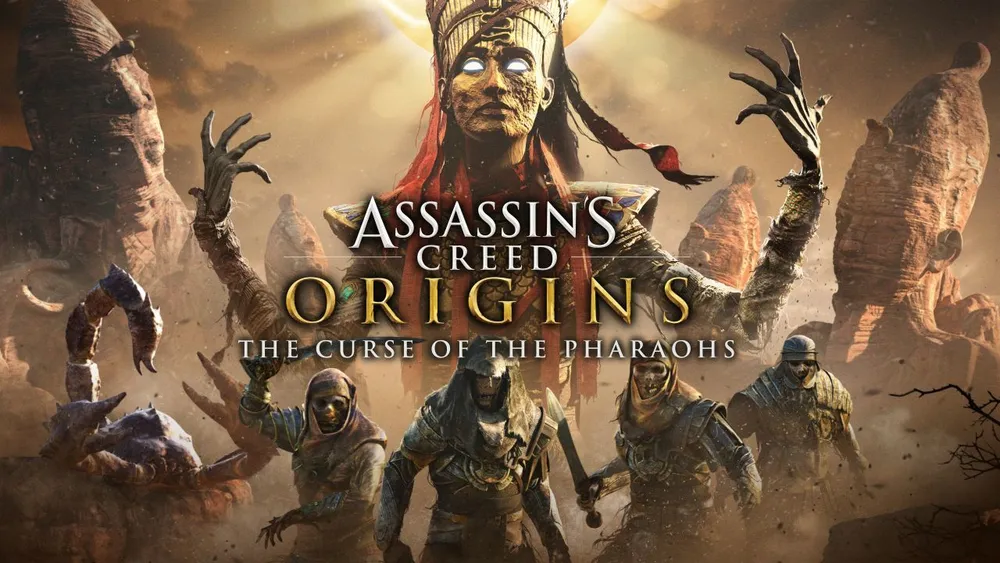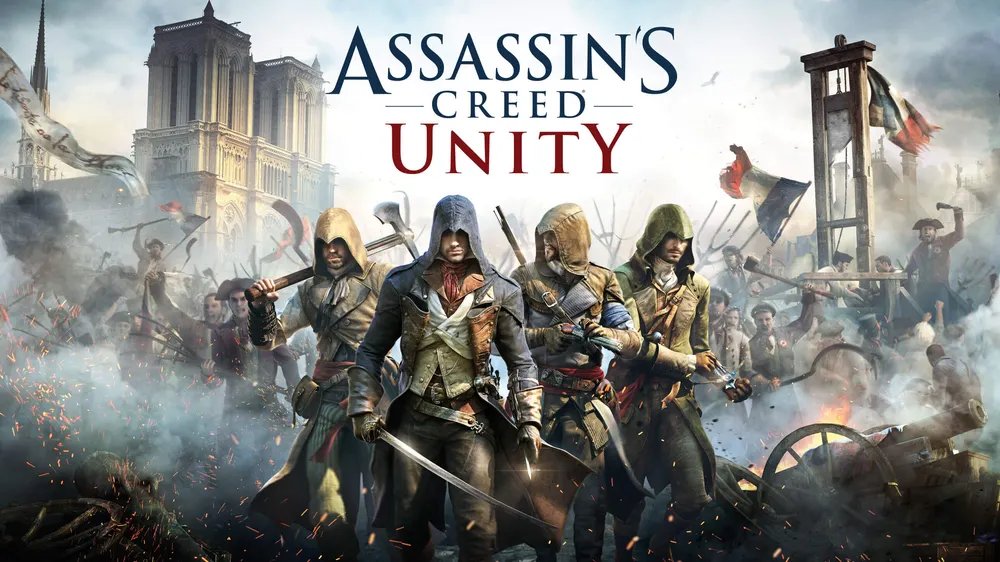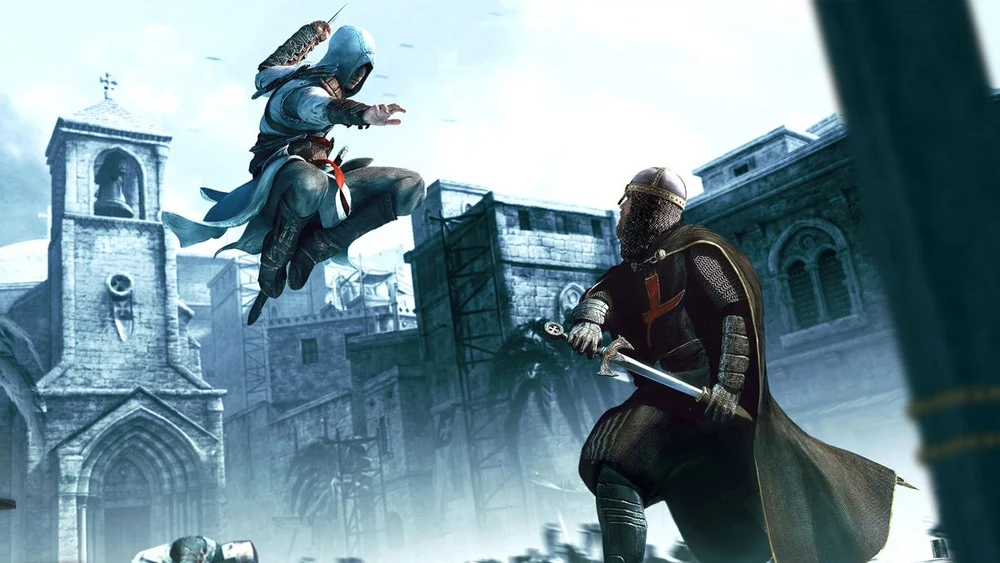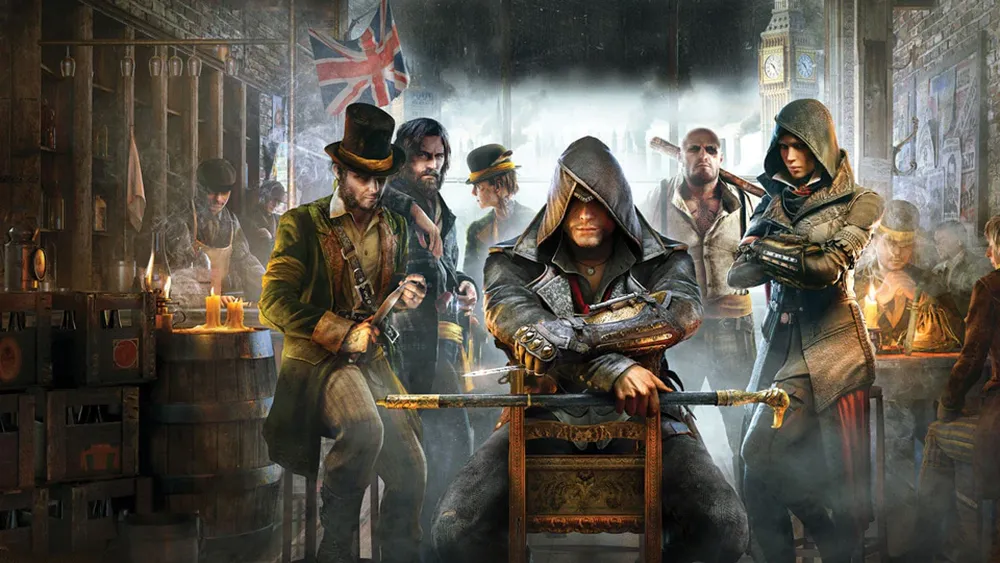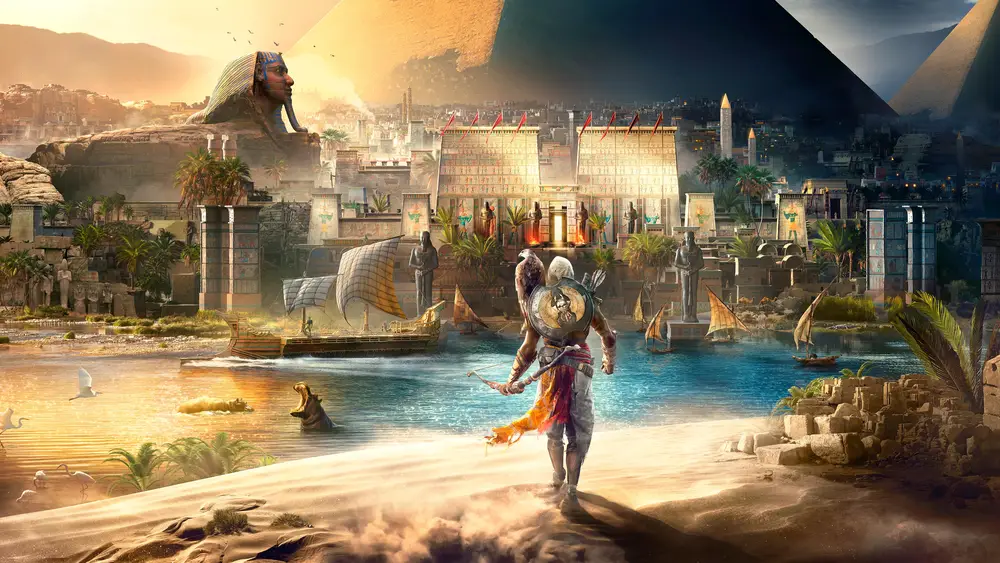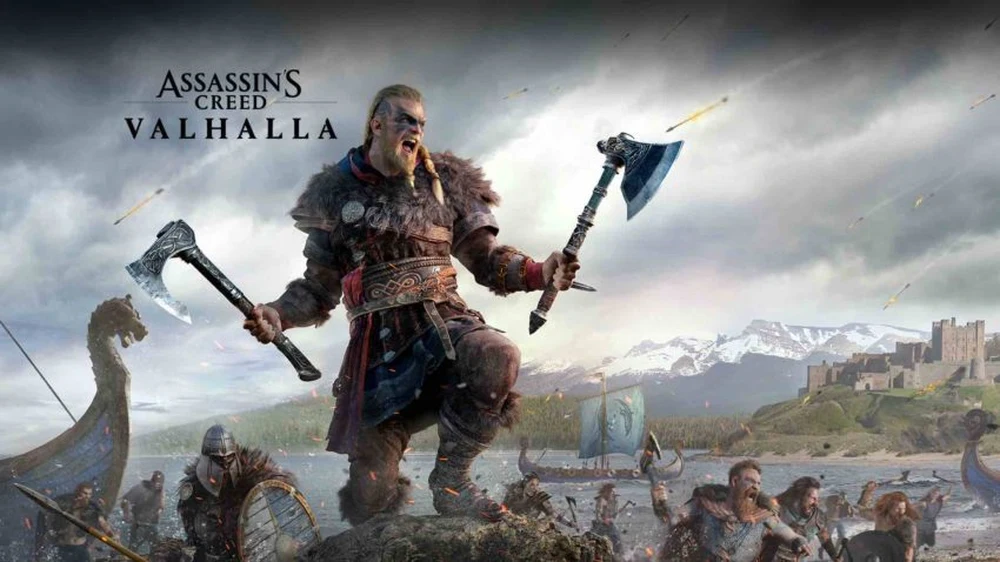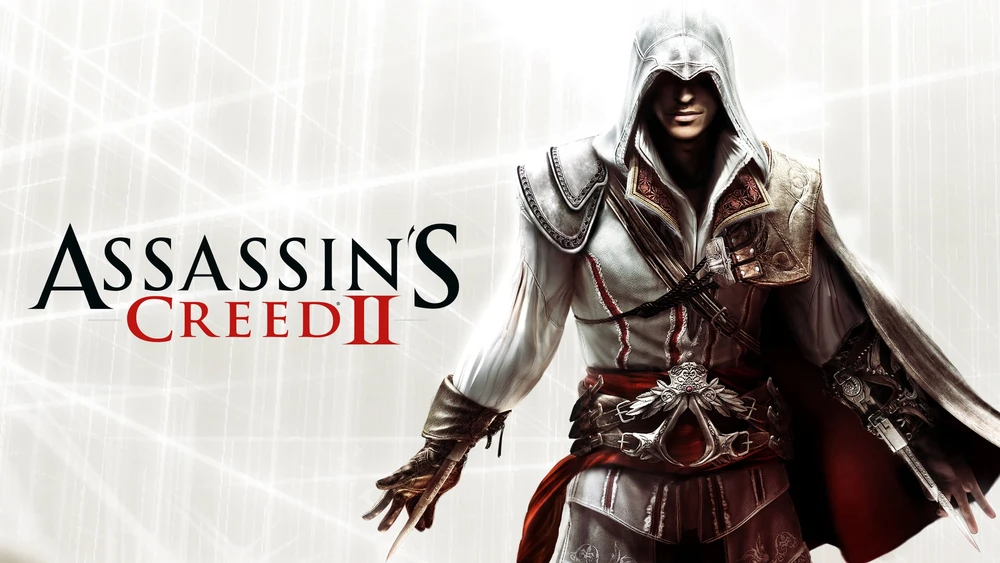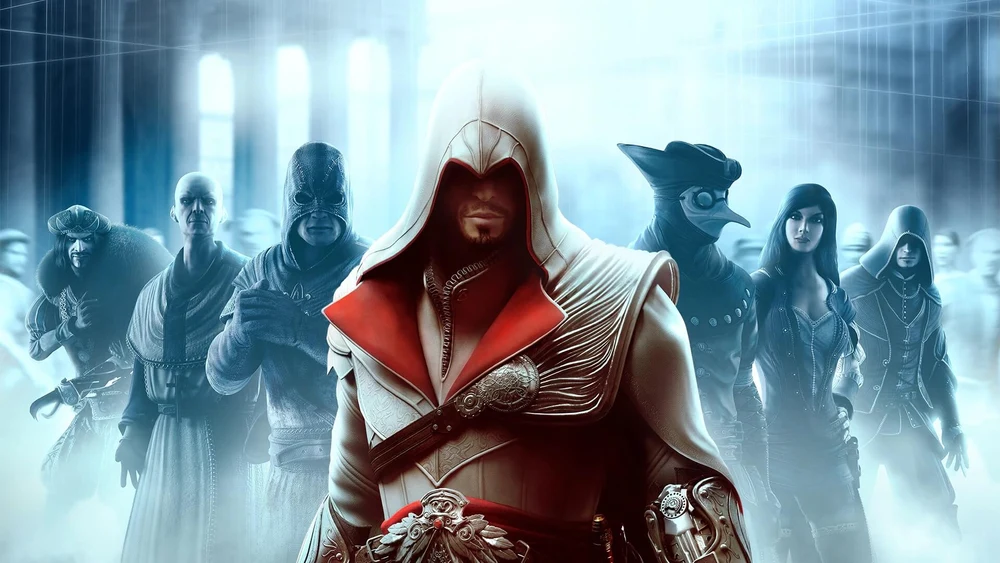Assassin’s Creed is one of the most successful and beloved video game franchises of all time. Since its debut in 2007, the series has taken players on a journey through history, exploring different cultures, locations and conflicts through the eyes of various assassins. From the Crusades to the Viking Age, from the Renaissance to the American Revolution, from the French Revolution to the Industrial Revolution, from Ancient Egypt to Ancient Greece, and more, Assassin’s Creed has offered a rich and immersive experience that blends stealth, action, parkour, exploration and storytelling.
Also read: Assassin’s Creed Mirage: A Return to the Glory Days of the Ezio Trilogy
But with so many games in the series, which ones are the best? How do they compare to each other in terms of gameplay, graphics, story, characters and innovation? This is a question that many fans have debated over the years, and there is no definitive answer. However, based on various sources such as Metacritic scores, user reviews, sales figures and expert opinions, we have compiled a list of all Assassin’s Creed games ranked from worst to best. This list includes all mainline games and spin-offs that have been released so far, as well as the upcoming Assassin’s Creed Mirage that is set to launch in 2023. Here are our rankings:
22. Assassin’s Creed: Altair’s Chronicles (2008)
Platform(s): Android, iOS, Nintendo DS
Metacritic score: 75/100 (DS)
Summary: The first spin-off game in the series, Assassin’s Creed: Altair’s Chronicles is a prequel to the original Assassin’s Creed that follows Altair as he searches for a mysterious artifact called The Chalice in Jerusalem. The game features a linear and simplified gameplay that consists of platforming, combat and stealth sections. The game also introduces some mini-games such as interrogation and pickpocketing.
Why it’s ranked last: Assassin’s Creed: Altair’s Chronicles is not a bad game per se, but it suffers from being too limited and shallow compared to the mainline games. The game lacks the open-world exploration and freedom that define the series, and the graphics and controls are mediocre at best. The game also has a forgettable story and characters that do not add much to Altair’s arc. The game is only recommended for hardcore fans who want to experience every aspect of the series.
21. Assassin’s Creed: Bloodlines (2009)
Platform(s): PlayStation Portable
Metacritic score: 63/100
Summary: The second spin-off game in the series, Assassin’s Creed: Bloodlines is a sequel to the original Assassin’s Creed that follows Altair as he travels to Cyprus to eliminate the remnants of the Templars. The game features an open-world environment that is divided into four regions: Limassol, Kyrenia, Kantara Castle and Buffavento Castle. The game also introduces some new gameplay elements such as ledge assassinations, counter-steals and health regeneration.
Why it’s ranked low: Assassin’s Creed: Bloodlines is an improvement over Altair’s Chronicles in terms of gameplay and graphics, but it still falls short of being a satisfying entry in the series. The game suffers from technical issues such as poor frame rate, glitches and loading times. The game also has a repetitive and boring mission structure that consists of mostly tailing and killing targets. The game does have some redeeming qualities such as expanding Altair’s story and his relationship with Maria Thorpe, but they are not enough to save the game from being mediocre.
20. Assassin’s Creed Chronicles: India (2016)
Platform(s): PC, PlayStation 4, Xbox One
Metacritic score: 64/100 (PS4)
Summary: The second installment in the Chronicles sub-series, Assassin’s Creed Chronicles: India is a side-scrolling stealth game that follows Arbaaz Mir as he tries to recover a precious artifact from the Templars during the Sikh Empire in 1841. The game features a colorful and stylized art direction that draws inspiration from Indian paintings and architecture. The game also introduces some new gameplay elements such as rope darts, chakrams and noise bombs.
Why it’s ranked low: Assassin’s Creed Chronicles: India is a decent stealth game that offers some fun and challenging moments, but it fails to capture the essence and spirit of Assassin’s Creed. The game lacks the depth and variety that make the mainline games so engaging and immersive. The game also has a weak story and characters that do not make us care about Arbaaz or his mission. The game is only recommended for fans who enjoy stealth games or want to explore a different setting in the series.
19. Assassin’s Creed Chronicles: Russia (2016)
Platform(s): PC, PlayStation 4, Xbox One
Metacritic score: 60/100 (PS4)
Summary: The third and final installment in the Chronicles sub-series, Assassin’s Creed Chronicles: Russia is a side-scrolling stealth game that follows Nikolai Orelov as he tries to escape from Russia with a young princess and a mysterious artifact during the October Revolution in 1918. The game features a bleak and gritty art direction that reflects the turmoil and violence of the era. The game also introduces some new gameplay elements such as sniper rifles, electric traps and vehicles.
Why it’s ranked low: Assassin’s Creed Chronicles: Russia is the weakest entry in the Chronicles sub-series, and one of the worst games in the series overall. The game suffers from frustrating and unfair gameplay that relies too much on trial and error and stealth sections that are poorly designed and executed. The game also has a dull and uninspired story and characters that do not make us invested in Nikolai or his mission. The game is only recommended for completionists who want to finish the Chronicles trilogy.
18. Assassin’s Creed III: Liberation (2012)
Platform(s): PlayStation Vita, PC, PlayStation 3, Xbox 360, PlayStation 4, Xbox One, Switch
Metacritic score: 70/100 (Vita)
Summary: The first spin-off game to feature a female protagonist, Assassin’s Creed III: Liberation is a companion game to Assassin’s Creed III that follows Aveline de Grandpré as she fights for freedom and justice in New Orleans during the American Revolution. The game features an open-world environment that is divided into three regions: New Orleans, the Bayou and Chichen Itza. The game also introduces some new gameplay elements such as persona system, alligator wrestling and voodoo dolls.
Why it’s ranked low: Assassin’s Creed III: Liberation is a commendable effort to bring the series to the handheld platform, but it suffers from being too ambitious and underdeveloped. The game has many technical issues such as bugs, glitches and poor performance. The game also has a confusing and convoluted story and characters that do not make use of Aveline’s potential or her unique background. The game does have some positive aspects such as the persona system, the diverse settings and the historical context, but they are not enough to make the game stand out in the series.
17. Assassin’s Creed Mirage (2023)
Platform(s): PC, PlayStation 5, Xbox Series X/S
Metacritic score: N/A
Summary: The upcoming thirteenth mainline game in the series, Assassin’s Creed Mirage is set in Baghdad during the Abbasid Caliphate. The game follows Basim Ibn Ishaq al-Sinjari, an Assassin who returns to his homeland after being exiled for years. The game features an open-world environment that recreates Baghdad in stunning detail. The game also introduces some new gameplay elements such as sandstorms, parkour puzzles, stealth kills and multiplayer modes.
Why it’s ranked low: Assassin’s Creed Mirage is a highly anticipated and promising game that offers a lot of potential and excitement. The game has a intriguing and mysterious protagonist, a fascinating and historical setting, a complex and immersive world. The game also has a refined and dynamic gameplay that consists of mostly sneaking and assassinating. The game does have some unknowns such as the story and characters, the technical and performance issues, and the reception and feedback, but they are not enough to dampen the game or its hype.
16. Assassin’s Creed Odyssey: The Fate of Atlantis (2019)
Platform(s): PC, PlayStation 4, Xbox One
Metacritic score: 84/100 (PS4)
Summary: The second and final expansion for Assassin’s Creed Odyssey, The Fate of Atlantis is a three-part DLC that follows Alexios or Kassandra as they explore the mythical realms of Elysium, Hades and Atlantis. The DLC features new open-world environments that are based on Greek mythology and the First Civilization. The DLC also introduces new gameplay elements such as Isu enhancements, legendary weapons and armor, and mythical creatures and bosses.
Why it’s ranked low: Assassin’s Creed Odyssey: The Fate of Atlantis is a stunning and epic DLC that offers a lot of improvement and content. The DLC has a captivating and rewarding story and characters that make us care about Alexios or Kassandra and their destiny. The DLC also has a breathtaking and diverse world that consists of mostly discovering and conquering. The DLC does have some flaws such as the lack of connection to the main game, the repetitive and grindy gameplay, and the high price and difficulty, but they are not enough to ruin the DLC or its enjoyment.
15. Assassin’s Creed Origins: The Curse of the Pharaohs (2018)
Platform(s): PC, PlayStation 4, Xbox One
Metacritic score: 86/100 (PS4)
Summary: The second and final expansion for Assassin’s Creed Origins, The Curse of the Pharaohs is a standalone DLC that follows Bayek as he travels to Thebes and investigates a curse that brings back the undead pharaohs. The DLC features new open-world environments that are based on Egyptian mythology and history. The DLC also introduces new gameplay elements such as shadow attacks, afterlife realms, legendary weapons and armor, and undead pharaohs and bosses.
Why it’s ranked low: Assassin’s Creed Origins: The Curse of the Pharaohs is a magnificent and thrilling DLC that offers a lot of improvement and content. The DLC has a compelling and mysterious story and characters that make us care about Bayek and his mission. The DLC also has a gorgeous and varied world that consists of mostly exploring and fighting. The DLC does have some drawbacks such as the lack of connection to the main game, the tedious and easy gameplay, and the high price and difficulty, but they are not enough to spoil the DLC or its quality.
14. Assassin’s Creed IV: Black Flag – Freedom Cry (2014)
Platform(s): PC, PlayStation 3, PlayStation 4, Xbox 360, Xbox One
Metacritic score: 83/100 (PS4)
Summary: The first expansion for Assassin’s Creed IV: Black Flag, Freedom Cry is a standalone DLC that follows Adewale, a former slave who becomes an Assassin and fights against the slave trade in Haiti. The DLC features a new open-world environment that consists of Port-au-Prince and its surroundings. The DLC also introduces new gameplay elements such as machete combat, blunderbuss weapon, slave liberation missions, and maroon allies.
Why it’s ranked low: Assassin’s Creed IV: Black Flag – Freedom Cry is a masterpiece and a masterpiece DLC that offers a lot of innovation and charm. The DLC has a powerful and emotional story and characters that make us care about Adewale and his cause. The DLC also has a realistic and immersive world that consists of mostly liberating and raiding. The DLC does have some strengths such as the historical setting, the graphics and visuals, the machete combat, the blunderbuss weapon, and the slave liberation missions, but they are not enough to make the DLC outstanding or memorable.
13. Assassin’s Creed Unity (2014)
Platform(s): PC, PlayStation 4, Xbox One
Metacritic score: 70/100 (PS4)
Summary: The first mainline game to be developed exclusively for the current-gen consoles, Assassin’s Creed Unity is set in Paris during the French Revolution. The game follows Arno Dorian as he joins the Brotherhood of Assassins and uncovers a Templar conspiracy behind the turmoil. The game features a massive and detailed open-world environment that recreates Paris in stunning detail. The game also introduces some new gameplay elements such as co-op missions, customization options and parkour system.
Why it’s ranked low: Assassin’s Creed Unity is a controversial game that divided the fanbase and critics alike. On one hand, the game is praised for its impressive graphics, immersive atmosphere and innovative features. On the other hand, the game is criticized for its numerous technical issues, lackluster story and characters, unbalanced gameplay and microtransactions. The game has been improved over time with patches and updates, but it still remains one of the most disappointing and divisive games in the series.
12. Assassin’s Creed Rogue (2014)
Platform(s): PC, PlayStation 3, Xbox 360, PlayStation 4, Xbox One, Switch
Metacritic score: 72/100 (PS3)
Summary: The last mainline game to be released for the previous-gen consoles, Assassin’s Creed Rogue is a sequel to Assassin’s Creed IV: Black Flag and a prequel to Assassin’s Creed III that follows Shay Patrick Cormac as he betrays the Brotherhood of Assassins and joins the Templar Order. The game features an open-world environment that consists of three regions: North Atlantic, River Valley and New York City. The game also brings back some gameplay elements from Black Flag such as naval combat, hunting and exploration.
Why it’s ranked low: Assassin’s Creed Rogue is a solid game that offers a unique perspective on the conflict between Assassins and Templars, but it suffers from being overshadowed by Unity and being too similar to Black Flag. The game does not offer much innovation or originality in terms of gameplay or graphics, and it feels more like an expansion than a standalone title. The game does have some strengths such as Shay’s character development, the historical setting and the connections to other games in the series, but they are not enough to make the game memorable or remarkable.
11. Assassin’s Creed (2007)
Platform(s): PC, PlayStation 3, Xbox 360
Summary: The game that started it all, Assassin’s Creed is set in the Holy Land during the Third Crusade. The game follows Desmond Miles as he relives the memories of his ancestor Altair Ibn-La’Ahad, an Assassin who is tasked with eliminating nine Templar targets. The game features an open-world environment that consists of three cities: Jerusalem, Acre and Damascus. The game also introduces the core gameplay elements of the series such as stealth, parkour, combat and social blending.
Why it’s ranked low: Assassin’s Creed is a groundbreaking game that deserves credit for creating a new genre and a new franchise, but it also suffers from being the first game in the series. The game has many flaws and limitations that make it outdated and tedious compared to the later games. The game has a repetitive and boring mission structure, a clunky and frustrating control scheme, a bland and empty world, and a shallow and vague story and characters. The game does have some merits such as the historical setting, the concept of genetic memory and the twist ending, but they are not enough to make the game enjoyable or replayable.
10. Assassin’s Creed Chronicles: China (2015)
Platform(s): PC, PlayStation 4, Xbox One
Metacritic score: 74/100 (PS4)
Summary: The first installment in the Chronicles sub-series, Assassin’s Creed Chronicles: China is a side-scrolling stealth game that follows Shao Jun as she returns to China to seek revenge against the Templars who wiped out her Brotherhood. The game features a beautiful and stylized art direction that draws inspiration from Chinese paintings and calligraphy. The game also introduces some new gameplay elements such as hiding in shadows, sliding under obstacles and using firecrackers.
Why it’s ranked low: Assassin’s Creed Chronicles: China is a good stealth game that offers some fun and challenging moments, but it does not feel like an Assassin’s Creed game. The game lacks the depth and variety that make the mainline games so engaging and immersive. The game also has a weak story and characters that do not make us care about Shao Jun or her mission. The game is only recommended for fans who enjoy stealth games or want to explore a different setting in the series.
9. Assassin’s Creed Syndicate (2015)
Platform(s): PC, PlayStation 4, Xbox One
Metacritic score: 76/100 (PS4)
Summary: The last mainline game to use the traditional gameplay formula of the series, Assassin’s Creed Syndicate is set in London during the Industrial Revolution. The game follows Jacob and Evie Frye, twin Assassins who fight against the Templars who control the city. The game features an open-world environment that recreates London in stunning detail. The game also introduces some new gameplay elements such as switching between two protagonists, using a grappling hook, driving carriages and forming gangs.
Why it’s ranked low: Assassin’s Creed Syndicate is a fun and enjoyable game that offers a lot of content and activities, but it does not offer much innovation or originality in terms of gameplay or story. The game feels like a refinement of the previous games rather than a reinvention of the series. The game also has a weak and predictable story and villains that do not make us invested in Jacob and Evie’s mission. The game does have some strengths such as the historical setting, the humor and charm of the protagonists, the side missions and characters, and the Jack the Ripper DLC, but they are not enough to make the game stand out in the series.
8. Assassin’s Creed III (2012)
Platform(s): PC, PlayStation 3, Xbox 360, Wii U, PlayStation 4, Xbox One, Switch
Metacritic score: 85/100 (PS3)
Summary: The fifth mainline game and the end of Desmond’s story arc, Assassin’s Creed III is set in America during the American Revolution. The game follows Connor Kenway, a half-English, half-Mohawk Assassin who fights against the Templars who manipulate the war. The game features an open-world environment that consists of three regions: Frontier, Boston and New York. The game also introduces some new gameplay elements such as naval combat, hunting, tree running and homestead.
Why it’s ranked high: Assassin’s Creed III is a ambitious and epic game that offers a lot of new features and content, but it also suffers from being too inconsistent and flawed. The game has many technical issues such as bugs, glitches and poor optimization. The game also has a slow and boring start, a weak and unlikable protagonist, a wasted and rushed story and a disappointing and anticlimactic ending. The game does have some strengths such as the historical setting, the naval combat, the homestead missions, the Haytham Kenway character and the Tyranny of King Washington DLC, but they are not enough to make the game great or satisfying.
7. Assassin’s Creed Origins (2017)
Platform(s): PC, PlayStation 4, Xbox One
Metacritic score: 81/100 (PS4)
Summary: The tenth mainline game and the start of a new era for the series, Assassin’s Creed Origins is set in Ancient Egypt during the Ptolemaic period. The game follows Bayek of Siwa, a Medjay who becomes the founder of the Hidden Ones, the precursor to the Assassins. The game features an open-world environment that recreates Egypt in stunning detail. The game also introduces some new gameplay elements such as RPG mechanics, loot system, skill tree and combat system.
Why it’s ranked high: Assassin’s Creed Origins is a beautiful and immersive game that offers a lot of exploration and discovery, but it also suffers from being too repetitive and generic. The game has a bland and boring story and characters that do not make us care about Bayek or his mission. The game also has a tedious and grindy gameplay that consists of mostly clearing out camps and forts. The game does have some strengths such as the historical setting, the graphics and visuals, the side quests and activities, the Senu eagle companion and the Curse of the Pharaohs DLC, but they are not enough to make the game outstanding or memorable.
6. Assassin’s Creed Odyssey (2018)
Platform(s): PC, PlayStation 4, Xbox One
Metacritic score: 83/100 (PS4)
Summary: The eleventh mainline game and the sequel to Origins, Assassin’s Creed Odyssey is set in Ancient Greece during the Peloponnesian War. The game follows Alexios or Kassandra, a mercenary who is a descendant of Leonidas I and a member of the First Civilization. The game features an open-world environment that consists of various regions such as Attika, Sparta, Athens and Delphi. The game also introduces some new gameplay elements such as dialogue choices, romance options, multiple endings and mythical creatures.
Why it’s ranked high: Assassin’s Creed Odyssey is a massive and impressive game that offers a lot of choice and customization, but it also suffers from being too bloated and inconsistent. The game has a long and convoluted story and characters that do not make us invested in Alexios or Kassandra or their mission. The game also has a overwhelming and exhausting gameplay that consists of mostly doing fetch quests and killing enemies. The game does have some strengths such as the historical setting, the graphics and visuals, the naval combat, the cultist system and the Fate of Atlantis DLC, but they are not enough to make the game excellent or satisfying.
5. Assassin’s Creed Valhalla (2020)
Platform(s): PC, PlayStation 4, PlayStation 5, Xbox One, Xbox Series X/S
Metacritic score: 80/100 (PS5)
Summary: The twelfth mainline game and the sequel to Odyssey, Assassin’s Creed Valhalla is set in England during the Viking Age. The game follows Eivor Varinsdottir or Eivor Wolf-Kissed, a Viking raider who leads their clan to settle in England and becomes involved in the conflict between Assassins and Templars. The game features an open-world environment that consists of various regions such as Norway, Wessex, Mercia and Northumbria. The game also introduces some new gameplay elements such as raiding, settlement building, flyting and drinking games.
Why it’s ranked high: Assassin’s Creed Valhalla is a fun and enjoyable game that offers a lot of content and activities, but it also suffers from being too similar to Odyssey and being too buggy and unpolished. The game has a decent and engaging story and characters that make us care about Eivor and their mission, but it also has some pacing and writing issues that make it drag and lose focus. The game also has a satisfying and balanced gameplay that consists of mostly exploring and fighting, but it also has some technical and performance issues that make it glitchy and unstable. The game does have some strengths such as the historical setting, the graphics and visuals, the raiding system, the settlement system and the Wrath of the Druids DLC, but they are not enough to make the game amazing or remarkable.
4. Assassin’s Creed Revelations (2011)
Platform(s): PC, PlayStation 3, Xbox 360
Metacritic score: 80/100 (PS3)
Summary: The third and final installment in Ezio’s trilogy, Assassin’s Creed Revelations is set in Constantinople during the Ottoman Empire. The game follows Ezio Auditore as he searches for the secrets of Altair Ibn-La’Ahad and his connection to Desmond Miles. The game features an open-world environment that consists of four districts: Constantinople, Cappadocia, Masyaf and Animus Island. The game also introduces some new gameplay elements such as hookblade, bomb crafting, tower defense and multiplayer modes.
Why it’s ranked high: Assassin’s Creed Revelations is a satisfying conclusion to Ezio’s saga that offers a lot of emotional moments and revelations, but it also suffers from being too similar to Brotherhood and being too short and rushed. The game does not offer much innovation or improvement in terms of gameplay or graphics, and it feels more like an expansion than a standalone title. The game also has some unnecessary and annoying features such as tower defense, den defense and Desmond’s journey. The game does have some highlights such as the historical setting, the Altair segments, the Yusuf Tazim character, the multiplayer modes and the ending, but they are not enough to make the game remarkable or memorable.
3. Assassin’s Creed II (2009)
Platform(s): PC, PlayStation 3, Xbox 360
Metacritic score: 91/100 (PS3)
Summary: The second mainline game and the start of Ezio’s trilogy, Assassin’s Creed II is set in Italy during the Renaissance. The game follows Ezio Auditore as he becomes an Assassin and seeks revenge against the Templars who killed his family. The game features an open-world environment that consists of various cities such as Florence, Venice, Forli and Monteriggioni. The game also introduces some new gameplay elements such as dual hidden blades, money system, weapon wheel and glyphs.
Why it’s ranked high: Assassin’s Creed II is a brilliant and classic game that offers a lot of innovation and charm. The game has a lovable and charismatic protagonist, a captivating and emotional story and characters, and a beautiful and diverse world. The game also has a smooth and varied gameplay that consists of mostly exploring and fighting. The game does have some drawbacks such as the clunky and frustrating controls, the outdated and glitchy graphics, and the abrupt and cliffhanger ending, but they are not enough to spoil the game or its legacy.
2. Assassin’s Creed IV: Black Flag (2013)
Platform(s): PC, PlayStation 3, PlayStation 4, Xbox 360, Xbox One, Wii U
Metacritic score: 88/100 (PS4)
Summary: The sixth mainline game and the prequel to III, Assassin’s Creed IV: Black Flag is set in the Caribbean during the Golden Age of Piracy. The game follows Edward Kenway, a pirate who becomes an Assassin and gets involved in the conflict between Assassins and Templars. The game features an open-world environment that consists of various islands, cities and naval locations. The game also introduces some new gameplay elements such as naval combat, underwater exploration and hunting.
Why it’s ranked high: Assassin’s Creed IV: Black Flag is a fantastic and thrilling game that offers a lot of freedom and adventure. The game has a great and charismatic protagonist, a captivating and humorous story and characters, and a beautiful and diverse world. The game also has a addictive and fun gameplay that consists of mostly sailing and plundering. The game does have some weaknesses such as the lack of stealth and parkour, the repetitive and easy combat, and the irrelevant and boring modern-day segments, but they are not enough to ruin the game or its enjoyment.
1. Assassin’s Creed Brotherhood (2010)
Platform(s): PC, PlayStation 3, Xbox 360
Metacritic score: 90/100 (PS3)
Summary: The second installment in Ezio’s trilogy, Assassin’s Creed Brotherhood is set in Rome during the Renaissance. The game follows Ezio Auditore as he rebuilds the Brotherhood of Assassins and fights against the Borgia family who control the city. The game features an open-world environment that consists of Rome and its surroundings. The game also introduces some new gameplay elements such as recruiting and training Assassins, renovating shops and landmarks, and multiplayer modes.
Why it’s ranked high: Assassin’s Creed Brotherhood is a superb and polished game that offers a lot of improvement and content. The game has a charming and badass protagonist, a compelling and exciting story and characters, and a rich and detailed world. The game also has a smooth and varied gameplay that consists of mostly assassinating and liberating. The game does have some flaws such as the lack of new locations, the short and easy main missions, and the unnecessary and annoying modern-day segments, but they are not enough to diminish the game or its quality.
The second installment in Ezio’s trilogy, Assassin’s Creed Brotherhood is set in Rome during the Renaissance. The game follows Ezio Auditore as he rebuilds the Brotherhood of Assassins and fights against the Borgia family who control the city. The game features an open-world environment that consists of Rome and its surroundings. The game also introduces some new gameplay elements such as recruiting and training Assassins, renovating shops and landmarks, and multiplayer modes.

